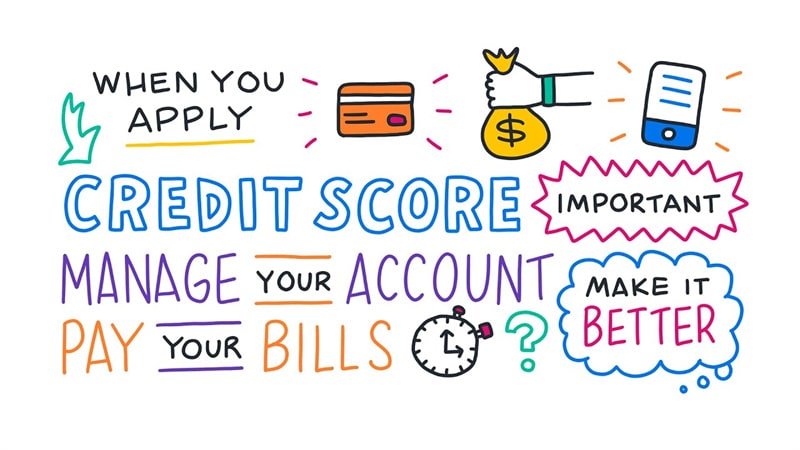
Are you in control of your finances? Or are your finances controlling you? If you're not sure, then it's time to take control and get your finances in order.
Here are some useful guidelines to help you take control of your finances:
Manage your credit score
Your credit score is a number that represents your creditworthiness. Lenders use it to determine whether you're a good candidate for a loan and, if so, how much interest they'll charge you.

A high credit score indicates that you're a responsible borrower who is likely to repay your debts on time, while a low credit score suggests that you're a higher-risk borrower who may be more likely to default on your debt obligations.
You can get your credit score from any of the three major credit bureaus: Experian, Equifax, and TransUnion. You can also get it from some websites that offer free credit scores, such as Credit Karma and Credit Sesame.
It's important to check your credit score regularly to make sure it's accurate and up-to-date. A finance app can offer a wide range of solutions that help you manage your credit score. You can view your credit score and credit utilization status anytime. You can also get credit-building insights and tips.
Others offer credit builder loans that help you build credit and save at the same time. If you see any errors, you can dispute them with the credit bureau. Additionally, if your score is low, there are steps you can take to improve it such as paying your bills on time and keeping balances low on credit cards and other ‘revolving' debt.
Know where your money is going
It's important to know where your money is going. You may think that you have a good handle on your finances, but if you don't know where your money is going, you could be in for a rude awakening. There are many different ways to find out where your money is going. You can get a free credit report from each of the three major credit reporting agencies. You can also get a copy of your most recent bank statement.
Another way to find out where your money is going is to use a budgeting tool. These tools can help you track your spending and give you a better understanding of where your money is going.
Once you know where your money is going, you can start to make changes. If you're spending too much money on unnecessary things, cut back. If you're not saving enough for your future, start making changes now.
Make a budget
It's never too late to take control of your finances. Whether you're struggling to make ends meet or you're simply looking to save more money, creating a budget is a great place to start.
A budget is an overview of your income and expenses, which can help you track your spending and identify areas where you may be able to cut back. It can also help you reach your financial goals, whether that's saving for a down payment on a house or funding your retirement.
Creating a budget may seem daunting, but it doesn't have to be. Here are some tips to get started:
- Know your income. This includes your regular paychecks, as well as any other sources of income such as dividends, interest, or rental income.
- Know your expenses. This includes both your regular bills and your variable expenses, such as groceries, entertainment, and clothing.
- Track your spending. For at least a month, track every penny you spend in a notebook or on a spreadsheet. This will help you identify areas where you may be able to cut back.
- Make adjustments. Once you know where your money is going, you can begin to make changes to your budget. Perhaps you'll decide to eat out less often or switch to a cheaper cell phone plan.
- Stick to it. A budget is only effective if you stick to it. Make sure you review your budget regularly and make adjustments as needed.
Invest wisely
When it comes to taking control of your finances, there are a few key things that you should keep in mind. First and foremost, it is important to invest wisely. This means being mindful of where you put your money and ensuring that you are getting the most out of your investment.
One way to do this is to start saving early on in life. The sooner you begin saving, the more time your money has to grow. Another way to invest wisely is to diversify your portfolio.
This means investing in a variety of different assets, such as stocks, bonds, and mutual funds. By diversifying, you are lessening your risk and increasing your chances of seeing a return on your investment.
Live below your means
This is one of the most important things you can do to take control of your finances. If you are spending more than you are earning, you will never be able to get ahead. Start by looking at your expenses and see where you can cut back. There is no need to live a life of luxury when you can live a comfortable life without all the extras.

Following these guidelines will help you take control of your finances and put you on the path to financial success. So what are you waiting for? Get started today!










